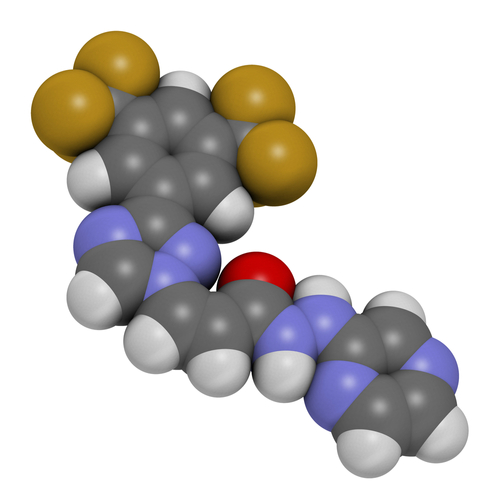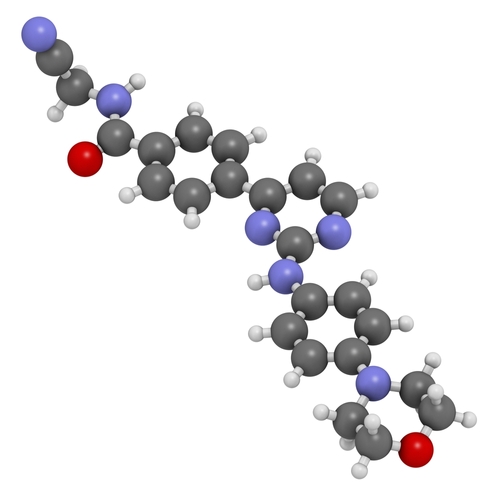ASCO 2023
Stay up-to-date on the latest news, research updates, and presentations from the ASCO 2023 Annual Meeting, held June 2-6.
A study aimed to validate the use of the Molecular International Prognostic Scoring System for myelodysplastic syndromes.
Treatment using a BET inhibitor as a monotherapy and in combination with appears well-tolerated in myelofibrosis.
Real-world outcomes were comparable to clinical trials in breast cancers with BRCA mutations treated with PARP inhibitors.
A cohort analysis found abbreviated breast MRI was an effective for cancer screening in patients with dense breasts.
Patients with DCIS breast cancer had "excellent disease control" after lumpectomy and accelerated partial breast irradiation.
Results from the 21-gene Breast Recurrence Score commercial assay were successful predictors for cancer-specific mortality.
Researchers used a radiomics approach to predict brain metastases in lung cancer patients.
The bone marrow microenvironment of myelodysplastic syndromes is very different from that of acute myeloid leukemia.
Middle meningeal artery embolization is a novel, minimally invasive strategy that may help manage subdural hematomas in AML.
Methylation-based sequencing appears to be a viable risk-assessment tool for myelodysplastic syndromes.
Ruben Mesa, MD, spoke at ASCO 2023 about the affect myelofibrosis has on patients’ quality of life.
The Oncology Brothers were live at ASCO 2023 to discuss findings from the TROPiCS-02 study.
The Oncology Brothers discuss findings from the phase 3 ADAURA trial.
Dr. Patrick Forde spoke with DocWire News at ASCO 2023 about updated data from the CheckMate 816 trial.
Pelabresib monotherapy appears to be clinically beneficial in patients who have high-risk essential thrombocythemia.
Ruxolitinib is effective at controlling hematocrit in the majority of patients with polycythemia vera.
The up-regulation of glutaminase is a common feature in Philadelphia-negative and JAK2-V617F-driven MPNs.
Zilurgisertib appears safe and well tolerated in patients who have anemia due to myelofibrosis.
A proof-of-concept study indicates the combined use of ruxolitinib and magrolimab is effective in treating myelofibrosis.
The treatment combination of selinexor plus ruxolitinib is effective in treatment-naïve patients with myelofibrosis.
The JAK inhibitor momelotinib appears to have a superior safety profile compared with fedratinib in myelofibrosis.
Patients with myelofibrosis with a certain platelet count who achieve spleen volume reduction on pacritinib have better OS.
US veterans who were exposed to Agent Orange have an increased risk of myeloproliferative neoplasms.
The novel JAK1-sparing inhibitor pacritinib is effective at reducing spleen enlargement and disease burden in MF patients.
The safety and efficacy of luspatercept is favorable for treating anemia in patients with myelofibrosis.
Patients admitted for atrial fibrillation who have myeloproliferative neoplasms have an increased risk of bleeding.
Extending colorectal cancer screening to older populations using stool testing results in more life years gained.
People with a history of skin cancer lack sufficient knowledge on photoprotection, study finds.
Advertisement
Advertisement






























 © 2025 Mashup Media, LLC, a Formedics Property. All Rights Reserved.
© 2025 Mashup Media, LLC, a Formedics Property. All Rights Reserved.